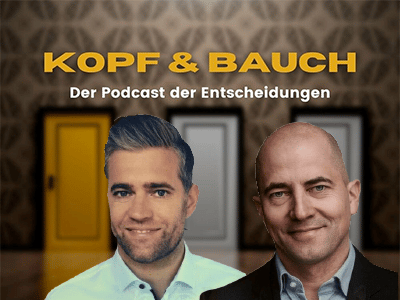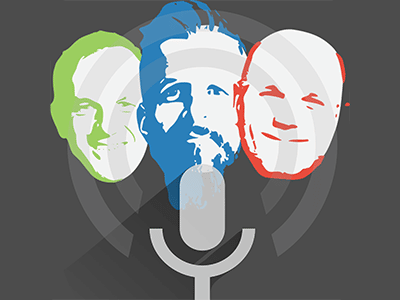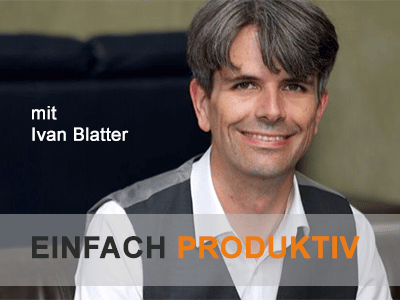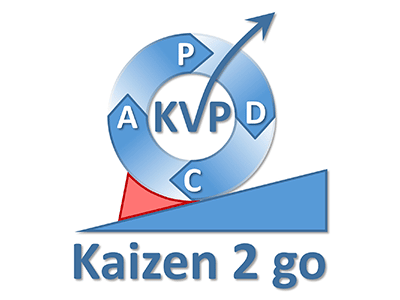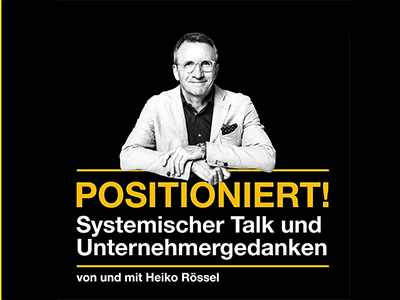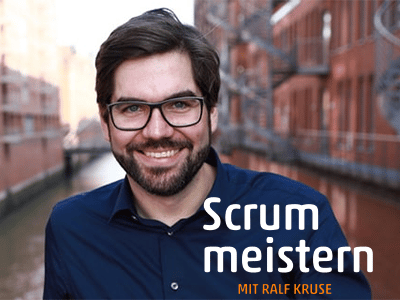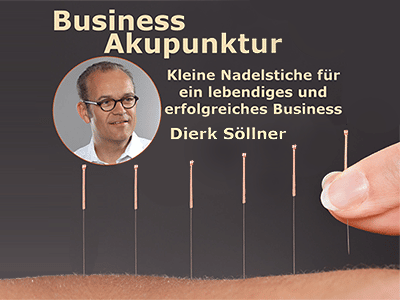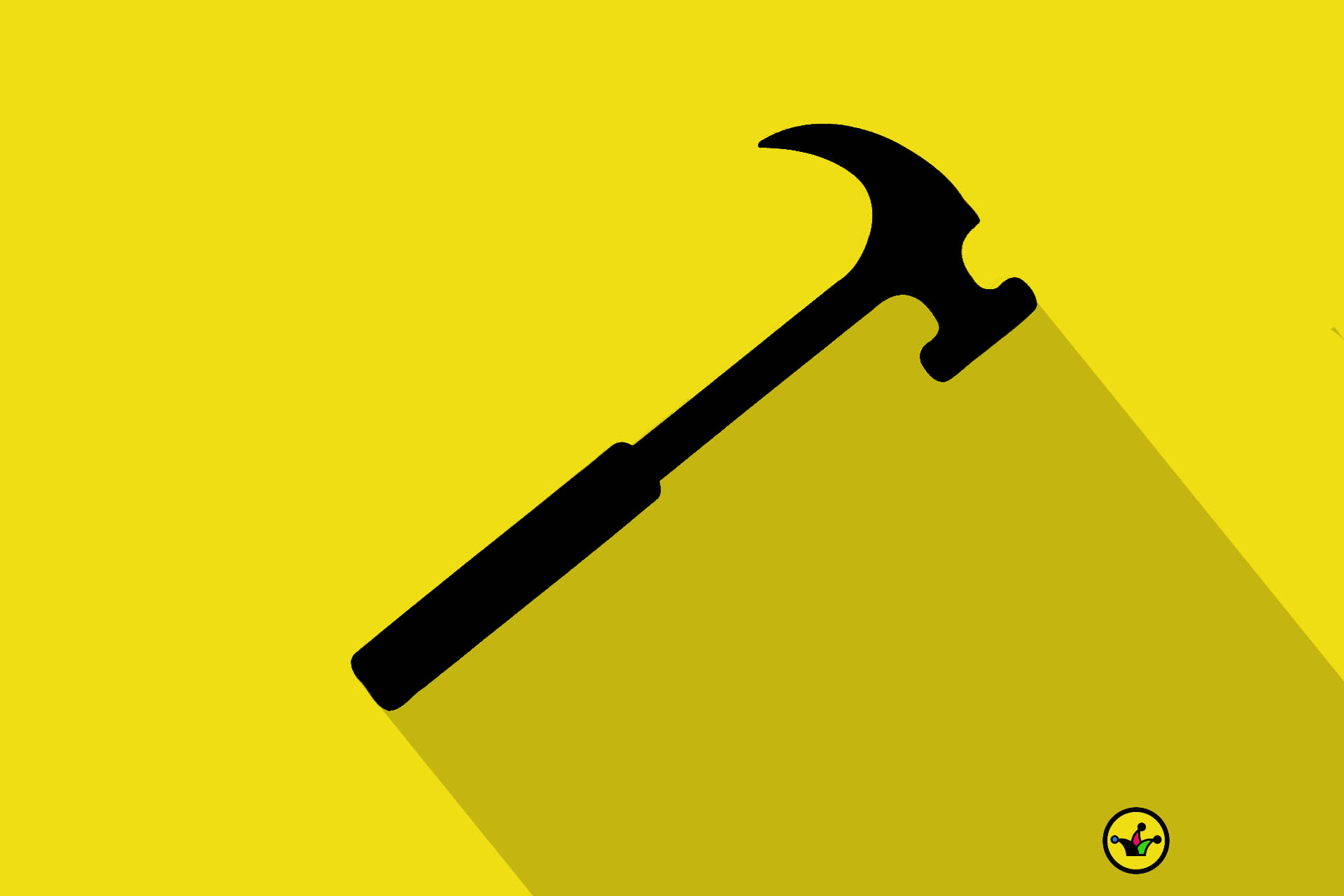The secret german podcast champions
“A podcast is a programme made available in digital format for download over the Internet, such as an episodic series of digital audio or video files that a user can download to a personal device to listen to at a point of their choosing. Streaming applications and podcasting services provide a convenient and integrated way to manage a personal podcast queue across many podcast sources and playback devices.”¹
I would like to recommend some podcasts that I listen to regularly. Maybe you’ll add one or two to your podcast queue, or maybe it makes sense to just ignore this queue and listen to the small and fine Secret Podcast Champions directly! Have fun discovering and listening.
My personal podcast recommendations
How can decisions be made? What solutions can you find for tricky problems? How do you gain more clarity? Or: How does Scrum help you in practice? There are a number of questions that keep me busy. Some of my favourite podcasts revolve around these topics. Others discuss the positioning of companies, the daily work in organisations or the improvement of processes. However, I would like to not only publish a short list of my Secret Podcast Champions, but also let the podcasters have their say. That way, you ideally know at an early stage what to expect and what you will later get with one click on your ears … 😉
Kopf und Bauch – Der Podcast der Entscheidungen
- Website: https://kopfundbauch-der-podcast-der-entscheidungen.podigee.io/
- Apple: https://podcasts.apple.com/us/podcast/kopf-und-bauch-der-podcast-der-entscheidungen/id1626130049
- Spotify: https://open.spotify.com/show/2JNcnnb6FOe3peNk4WioMj
- Deezer: https://www.deezer.com/de/show/3737747
Tobias Leisgang: We are talking about decisions. Because good decisions benefit from different perspectives, three of us do the podcast. Peter is a fan of data-driven decisions and usually takes the perspective of the head. Tobias likes to let chance decide and gives his voice to his gut. Then there’s Ada, because machines support us in making decisions and are also making more and more decisions themselves.
Who do you want to address with this?
Peter Maischak: All people who want to expand their decision-making toolbox and make better decisions. In the entrepreneurial context, it’s people in project teams or in leadership roles. Freelancers also like to listen to us. Maybe we also have students as listeners? Because we are convinced that good decisions do not necessarily need many years of professional experience. We all also make decisions in our private lives and so we also address people in their private context.
Why do you do Kopf und Bauch?
Tobias Leisgang: Although people make decisions all the time, the tools are usually unknown and little trained. We want to change that by making useful knowledge easily accessible, talking to experienced decision-makers and providing real help. The goal is to make easier, faster and better decisions possible for everyone.
At the same time, we also enjoy giving each other new perspectives and learning from our guests.
What is the frequency of your podcast and how long do the individual episodes last?
Peter Maischak: A new episode is released every 14 days. The episodes are 15 to 45 minutes long.
Do you have guests on Kopf und Bauch?
Tobias Leisgang: We have come up with three formats for our podcast: The knowledge quickie, the guest episode and the decision domian.
Our guest episodes feature people who have expertise on the topic of decisions – from management consultants to scientists. But we also invite people in whose lives and professions decisions play an important role. In the near future, we will have a female arbitrator as a guest. In Decision Domian, anyone and everyone can have their say. We offer three additional pairs of ears & opinions on a decision-making situation. Whereby we are not sure right now whether Ada actually has ears?
And what are your favourite podcasts?
Ada: Understanding tomorrow today. 😊
Peter Maischak: I like listening to podcasts, which are often far removed from what drives me around in everyday life. I like to switch off in my carpentry workshop and listen to: “Gemischtes Hack“, “Baywatch Berlin” or “Zeit-Verbrechen“. “Hotel Matze” is also great from time to time, because you get to know and understand many well-known personalities better there.
Tobias Leisgang: I can’t decide. “Freikopfler”, because different perspectives not only lead to better decisions but also to better solutions. “Umbruch – der Techpodcast“, because I like technology and Alexa as a sidekick. Then there’s “17 Ziele – Der Podcast?“, because sustainability is a topic close to my heart and this podcast presents it in a relaxed manner without a moralising finger.
Freikopfler
Christoph Karsten, Heiko Bartlog and Guido Bosbach run Freikopfler.
- Website: https://freikopfler.de/podcast/
- Apple: https://podcasts.apple.com/de/podcast/freikopfler-podcast/id1596440478
- Spotify: https://open.spotify.com/show/7lWZheneQUWIGcIbW1xoyk
- Deezer: https://www.deezer.com/de/show/3171012
Heiko Bartlog: We don’t really have a central theme. The central element is our – as far as we know – unique process structure. Our guests bring their own topics into it – by the way, we never know the topic in advance. The three of us then spontaneously try to develop solutions to these – often tricky – problems. In retrospect, however, it mostly revolves around topics that have something to do with work and cooperation – sometimes in a narrower, sometimes in a broader sense.
Who do you want to address with this?
Christoph Karsten: Everyone who is interested in finding new solutions to tricky problems themselves or with others. We are happy about everyone who finds fun and inspiration in us, our guests and their topics. And if at some point someone should come up with the idea of using our structure themselves, we’ll be even happier!
Why do you do Freikopfler?
Guido Bosbach: First and foremost because we enjoy it! We love to think out loud together about surprising, tricky problems and come up with new solutions from our three different perspectives. And we invite guests to join us, with whom we would like to talk (again). And of course we don’t mind reaching and inspiring people who may not have known us before.
What is the frequency of your podcast and how long do the individual episodes last?
Heiko Bartlog: We have produced two seasons so far. We published the first season weekly on Wednesdays. The second season is also usually on Wednesdays, but not so strictly every week. An episode usually lasts 35 to 40 minutes. By the way, between seasons one and two there was a somewhat longer special episode.
Do you have guests on Freikopfler?
Christoph Karsten: With the exception of the last episode of each season, in which we conduct an internal retrospective, a guest has his or her say in each episode and contributes to the central theme: as an impulse at the beginning and again at the end of each episode.
And what are your favourite podcasts?
Heiko Barlog: Until recently, I didn’t listen to any podcasts myself, not even our own 😉 Recently, however, I’ve become an absolute fan of the podcast “Huberman Lab” and can’t rule out discovering more for myself in the future.
Guido Bosbach: A difficult question. I can’t say I have a favourite podcast, but I like to listen here and there. I’ll gladly name three from the long list:
- “WorkLife” by Adam Grant, in which the US organisational psychologist presents ideas, concepts and other “secrets” on how work can succeed better.
- WDRs “ZeitZeichen“. A radio format (actually) that I enjoyed listening to as a child.
- “Tierisch Menschlich” with Martin Rütter and Katharina Adick. A podcast that is theoretically and yet practically and scientifically about quite a lot of dog, but also reflects very many human experiences.
Christoph Karsten: I’m actually rather a podcast muffle. When I put my headphones in my ears, they usually play loud rock and/or metal, because I love discovering new good music. That’s why the only podcasts I’ve been listening to with any regularity lately are our own and “Empathieschenker” by my colleague Sebastian Kremser, whose format is “just” listening to people with an interesting topic.
Einfach produktiv – Der Podcast für mehr Klarheit und Fokus
Ivan Blatter runs Einfach produktiv – Der Podacst für mehr Klarheit und Fokus.
- Website: https://ivanblatter.com/zeitmanagement-podcast/
- Spotify: https://open.spotify.com/show/2rnyCvHNFurhDGam0DEoc0
- Deezer: https://www.deezer.com/de/show/13531
Ivan, what is your podcast about or what is the central topic?
Ivan Blatter: My podcast is about how you can achieve more self-determination and freedom in your business. It all starts with good, functioning time management, but that’s really only the beginning. It’s ultimately about gaining clarity and focus so you can do more with your time and ultimately your life. Better decisions, more freedom, getting off the hamster wheel.
Who do you want to address with this?
Ivan Blatter: First and foremost, I am addressing solopreneurs, self-employed people and entrepreneurs, i.e. people who have any leeway at all to actually make changes. And they are succeeding! Because I am convinced that we usually have more leeway than we think.
Why do you do Einfach produktiv?
Ivan Blatter: I started on 15 January 2013 and it was initially an experiment, because I like to try out new things. I wanted to reach more people and also saw the potential of a podcast as a marketing tool. The math worked out. With my podcast, I can share my thoughts about time management with many people. Time is something precious and it would be a shame not to use it wisely. With the podcast, I land directly in people’s heads. It’s nice when I can trigger something this way. The feedback shows that for many listeners I succeed in doing that.
What is the frequency of your podcast and how long do the individual episodes last?
Ivan Blatter: My podcast comes out once a week, on Saturdays. An episode lasts between 15 and 35 minutes.
Do you have guests?
Ivan Blatter: Hin From time to time, yes. If I can’t cover a topic related to time and self-management myself, I like to get experts to talk to me. But most episodes are solo episodes.
And what is your favourite podcast?
Ivan Blatter: That changes all the time. At the moment I really like listening to “Focused” by David Sparks and Mike Schmitz.
When I started listening to podcasts over 10 years ago, there were only a few good German podcasts. As a result, I still listen almost exclusively to English podcasts.
Kaizen 2 go
Götz Müller runs Kaizen 2 go.
- Website: https://www.geemco.de/kaizen-2-go-podcast/
- Spotify: https://open.spotify.com/show/2nqs9RJMkxtYtbKhYI4CpS
Götz Müller: Everything about business processes and their improvement. I define processes as the combination of communication and behavior. Since Watzlawik at the latest, we have known that non-communication is not possible and it is basically the same with non-behaviour. This means that everyone is affected, regardless of whether one has an awareness of it or not (as with gravity, electricity, etc.). The location of the business processes may also leave the classical business context and drift into the non-profit or private sector.
Who do you want to address with this?
Götz Müller: Everyone who is interested in the above-mentioned topics, especially those who have an association with Lean & Co., typically in their professional, business or private context.
Why do you do Kaizen 2 go?
Götz Müller: Because I can always learn something new and I get insights that are sometimes not so easy to gain otherwise.
What is the frequency of your podcast and how long do the individual episodes last?
Götz Müller: Ideally weekly (when I have people to talk to), about 30-45 minutes.
Do you have guests on Kaizen 2 go?
Götz Müller: My podcast is based almost exclusively on discussion episodes.
And what is your favourite podcast?
Götz Müller: The podcast of the “Gemba-Academy” (currently well over 400 episodes), which also covers a broad spectrum around Lean, Kaizen & Co.
Positioniert! – Systemischer Talk und Unternehmergedanken
- Website: https://www.heikoroessel.com/positioniert
- Spotify: https://open.spotify.com/show/4kRvoH1zT4vW2sUb5xYyot
- Deezer: https://www.deezer.com/de/show/3284982
Heiko Roessel: The central topic of the podcast is positioning. The positioning, in turn, is the company’s offers and products and the potential target group to whom you want to sell these solutions. Ultimately, this is what every business revolves around. That’s why the podcast deals with all questions of business strategy, but also with the very practical topics of operational implementation. A colourful mixture of exciting topics around business.
Who do you want to address with this?
Heiko Roessel: My podcast is primarily aimed at self-employed people, entrepreneurs and those who want to become entrepreneurs. But of course managers and executives are also invited.
Why do you do the podcast!?
Heiko Roessel: I was an entrepreneur and board member myself for many years, worked as a management consultant for large corporations and organisations and am a lecturer at Aalen University. I would like to pass on topics that I have been able to learn theoretically and use practically. Above all, I would like to build a stage for my many interview partners so that I can present the colourful world of business in a truly multifaceted way.
What is the frequency of your podcast and how long do the individual episodes last?
Heiko Roessel: The episodes last about 45 minutes and appear every Thursday at 6 o’clock sharp.
Do you have guests on the show?
Heiko Roessel: So far I’ve invited great interview partners for every episode, but maybe I’ll do a few episodes on my own, who knows.
And what is your favourite podcast?
Heiko Roessel: My favourite podcast is “Systemisch Denken“. It’s my second podcast. And yes, I just like hearing myself talk… 😉
Scrum meistern
Ralf Kruse runs Scrum meistern.
- Website: https://enablechange.de/podcast-scrum-meistern/
- Apple: https://podcasts.apple.com/de/podcast/scrum-meistern/id1493556266
- Spotify: https://open.spotify.com/show/5qPElDlc49xaQ1Die1Iaiv
- Deezer: https://www.deezer.com/de/show/760102
Ralf Kruse: Scrum is a minimal framework that helps to effectively tackle projects where you reach your limits with planned procedures. In order to use Scrum effectively for one’s own purposes, it is crucial to design Scrum with the people involved in a way that fits the respective context. For this, it is essential to understand the core idea of Scrum and its individual elements, as well as to develop an idea of how it works in interaction with adjacent areas.
Mastering Scrum wants to help to better understand exactly these intentions behind Scrum and related areas. I would like to help the listeners to gain clarity about what is important in the use of Scrum and thus help them to take away thought-provoking impulses for practice. Beyond my content-related impulses, I would like to use the podcast to initiate exchange on critical topics and offer a platform for discourse in order to gain more clarity together on what really matters in Scrum and agility.
Who do you want to address with this?
Ralf Kruse: The podcast focuses on three groups:
- Newcomers who are looking for orientation on what really matters in Scrum.
- Practitioners who are looking for inspiration and food for thought.
- My training participants, who get repetition and thought-provoking impulses via the podcast.
Why do you do Scrum meistern?
Ralf Kruse: Scrum is easy to understand, but the crux lies in the application and design in practice.
In 2018, I was increasingly confronted with the statement that the topic of agility in the team has been sufficiently dealt with and that we should now devote ourselves to more relevant topics (agile leadership, scaling, product discovery). This statement, however, did not correspond at all to my perception from my coaching and training. We felt that we had exactly the same problems as in 2010 and simply did not manage to address them in such a way that they could be solved in the long term.
I did manage to create sustainable agile environments for my clients. However, it became clear again and again that it is important to design Scrum and its elements from their intention with the people in the environment. For me, precisely this aspect was not focused on enough in social media (Twitter and LinkedIn) and at community events. It felt like there was far too much talk about cooking recipes and symptom treatment.
With my podcast, I would like to offer a focused approach to the core ideas of Scrum, its elements and related areas, as well as a platform for exchange.
What is the frequency of your podcast and how long do the individual episodes last?
Ralf Kruse: Currently I try to publish an episode of 30-45 minutes every fortnight.
Do you invite guests to speak?
Ralf Kruse: At the moment, I always invite experts from related fields to exchange ideas and find a consolidated approach to their topic from the perspective of Scrum and agility.
In the first 50 episodes, I have always built on a content episode by speaking to an expert on the podcast wrap-up. The aim behind this was to add another expert’s perspective to the content.
I was surprised myself how much I learn from the exchange with my guests. At this point, a big thank you to all the guests. You were an incredible enrichment for this podcast!
And what is your favourite podcast?
Ralf Kruse: “Der ganz formale Wahnsinn” by Andreas Hermwille and Prof. Stefan Kühl. I find it impressive how Andreas Hermwille makes central approaches of organisational sociology accessible in a relaxed conversation as an orientation for typical problems and phenomena that we observe in the world of work.
Business Akupunktur
Dierk Söllner runs Business Akupunktur.
- Website: https://www.dierksoellner.de/business-akupunktur/
- Apple: https://podcasts.apple.com/de/podcast/business-akupunktur/id1611010574
- Spotify: https://open.spotify.com/show/1f0EKsm2XCtox1GqjzHxKh
- Deezer: https://www.deezer.com/de/show/3369112
Dierk, what is your podcast about or what is the central topic?
Dierk Soellner: Business Acupuncture has the subtitle “Little pinpricks for a lively and successful business”. In my work I support organisations, teams as well as specialists and managers according to my vision “Strengthening people and teams – empathically and competently”.
My podcast is intended to help people to better understand their work and to master the many challenges, precisely with empathy and professional competence. The podcast is produced for people who want to reflect on their impressions, experiences and questions at work. I want to provide listeners with ideas, approaches and tools for shaping their own work.
Who do you want to address with this?
Dierk Soellner: I want to address people in organisations who want to understand why things run the way they do and who want to shape this course of events. So it is for people who want to reflect on the time they spend at work. For people who want to reflect on their experiences, perhaps to be able to deal with them better. Maybe also to have more perspective in the discussions at work. I want to provide ideas, approaches and tools to shape your own work.
Why do you do Business Akupunktur?
Dierk Soellner: I love my work and feel very connected to my vision. And I love podcasts. On the one hand, it’s an opportunity for me to share my experiences and give something back to the community. In relaxed professional discussions, I can get a lot across together with the guests. On the other hand, I also learn from the guests in my podcast. I almost always look for a blog post or other publication by the guest as the basis for the conversation. So I can ask questions and have the topic explained to me again “orally”, so to speak.
What is the frequency of your podcast and how long do the individual episodes last?
Dierk Soellner: I publish a new episode of my podcast every month. Each episode lasts about 45-60 minutes. Of course, the details depend on the topic and my guest. I have also produced episodes lasting more than an hour. My experience is that it takes this amount of time to discuss a topic well and to build up a pleasant and trusting atmosphere with the guests. The feedback I get is quite clear: if you like an episode, you will listen to it for a comparatively long time.
Do guests have their say with you?
Dierk Soellner: Guests are the basis of my podcast! At the beginning I had also planned to publish personal episodes with just me. But then I got some feedback that my conversations with interesting guests were much more authentic. “You come across as I experience you here in the company,” was a fitting sentence from one of my customers.
And what is your favourite podcast?
Dierk Soellner: I don’t have a favourite podcast. I listen to different podcasts on different topics. This concerns both professionally oriented and more personal topics. I listen to some podcasts really regularly, others more sporadically or for shorter periods of time. I always decide according to my mood. I love the different formats of the podcasts, i.e. sometimes more explanatory with one person, sometimes relaxed conversations with two people.
Conclusion
Do you already know one or two of my Secret Podcast Champions? That would be great, because the podcasters mentioned deserve to be heard. Any new recommendations for you? Great. Feel free to listen in and get in touch with the creators. I’m sure they’d be happy to hear feedback or ideas.
Notes:
If you like the post or want to discuss it, feel free to share it with your network.
[1] The podcast definition comes from the English Wikipedia page.
Michael Schenkel has published other articles in the t2informatik blog, including
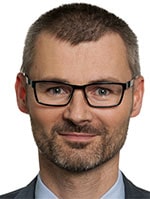
Michael Schenkel
Head of Marketing, t2informatik GmbH
Michael Schenkel has a heart for marketing - so it is fitting that he is responsible for marketing at t2informatik. He likes to blog, likes a change of perspective and tries to offer useful information - e.g. here in the blog - at a time when there is a lot of talk about people's decreasing attention span. If you feel like it, arrange to meet him for a coffee and a piece of cake; he will certainly look forward to it!
